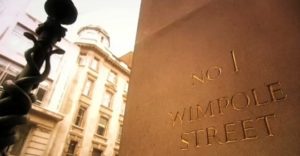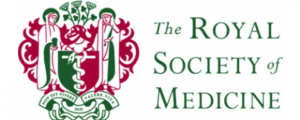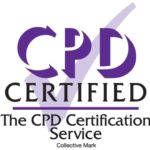1. Only 10% of patients get to full recovery.
2. tPA only fully works to reverse the stroke 12% of the time. Known since 1996.
3. No protocols to prevent your 33% dementia chance post-stroke from an Australian study.
4. Nothing to alleviate your fatigue.
5. Nothing that will cure your spasticity.
6. Nothing on cognitive training unless you find this yourself.
7. No published stroke protocols.
8. No way to compare your stroke hospital results vs. other stroke hospitals.
http://arni.uk.com/recovery-after-brain-injury-state-of-the-art-conference-2017/
THE ROYAL SOCIETY OF MEDICINE
13th October 2017
Welcome
to the Recovery after Brain Injury: State of the Art Conference in
association with the ARNI Institute and the UCL Institute for Sport,
Exercise and Health at the prestigious Royal Society of Medicine, Wimpole Street, London.
About This Conference
 Preventative measures
mean that the incidence of stroke in the United Kingdom is falling.
Nonetheless, one person has a stroke every 3½ minutes. Further, the
population is ageing, meaning that the background morbidity and frailty
of those affected is changing. So, too, is the management of acute
stroke: the creation of Hyperacute Stroke Units, and care pathways
involving thrombolysis or mechanical clot recovery mean that outcome
after stroke now differs too. Finally, our understanding of brain
function is also progressing rapidly. For all of these reasons,
historical stroke rehabilitation pathways and methods need to adapt.
Likewise, traumatic brain injury (TBI) remains common: one person is
admitted to hospital every 15 minutes. Every hour, two of these will be
classified as ‘moderate or severe’.
Preventative measures
mean that the incidence of stroke in the United Kingdom is falling.
Nonetheless, one person has a stroke every 3½ minutes. Further, the
population is ageing, meaning that the background morbidity and frailty
of those affected is changing. So, too, is the management of acute
stroke: the creation of Hyperacute Stroke Units, and care pathways
involving thrombolysis or mechanical clot recovery mean that outcome
after stroke now differs too. Finally, our understanding of brain
function is also progressing rapidly. For all of these reasons,
historical stroke rehabilitation pathways and methods need to adapt.
Likewise, traumatic brain injury (TBI) remains common: one person is
admitted to hospital every 15 minutes. Every hour, two of these will be
classified as ‘moderate or severe’.
From
innovative interventions for patients with stroke and TBI to stem-cell
research, advances in neuroimaging to navigated brain stimulation, this
meeting will show how new advances in predicting outcomes, organisation
of care pathways, treatment options and acceleration in the pace of
technological advances now all hold a significant part of the key to
better future treatments and recoveries from serious limitations
resulting from stroke and TBI. A European assembly of research-active
scientists, clinicians and practitioners will explain and demonstrate
leading edge developments in management and treatment processes.
This
Conference focuses on what ‘State of the Art’ Rehabilitation should
look like after stroke or TBI- and what we can expect in the future.

 This Conference is for Public and Professionals.
All interested patients, families and carers – and those who
are involved in the care or rehabilitation of stroke patients. Doctors
(general practitioners, stroke and rehabilitation specialists, general
physicians, neurologists and more), nurses, physiotherapists and
physical therapists, occupational therapists, and those involved in
sports and exercise science. All grades (from trainee onwards) are so
welcome.
This Conference is for Public and Professionals.
All interested patients, families and carers – and those who
are involved in the care or rehabilitation of stroke patients. Doctors
(general practitioners, stroke and rehabilitation specialists, general
physicians, neurologists and more), nurses, physiotherapists and
physical therapists, occupational therapists, and those involved in
sports and exercise science. All grades (from trainee onwards) are so
welcome. Seats will be allocated on first come, first served basis and will be going very very quickly! Chef’s Choice Hot-Fork Lunch, Teas/Coffees, Biscuits & Fresh Fruit Salad are included in the seat price.
No comments:
Post a Comment